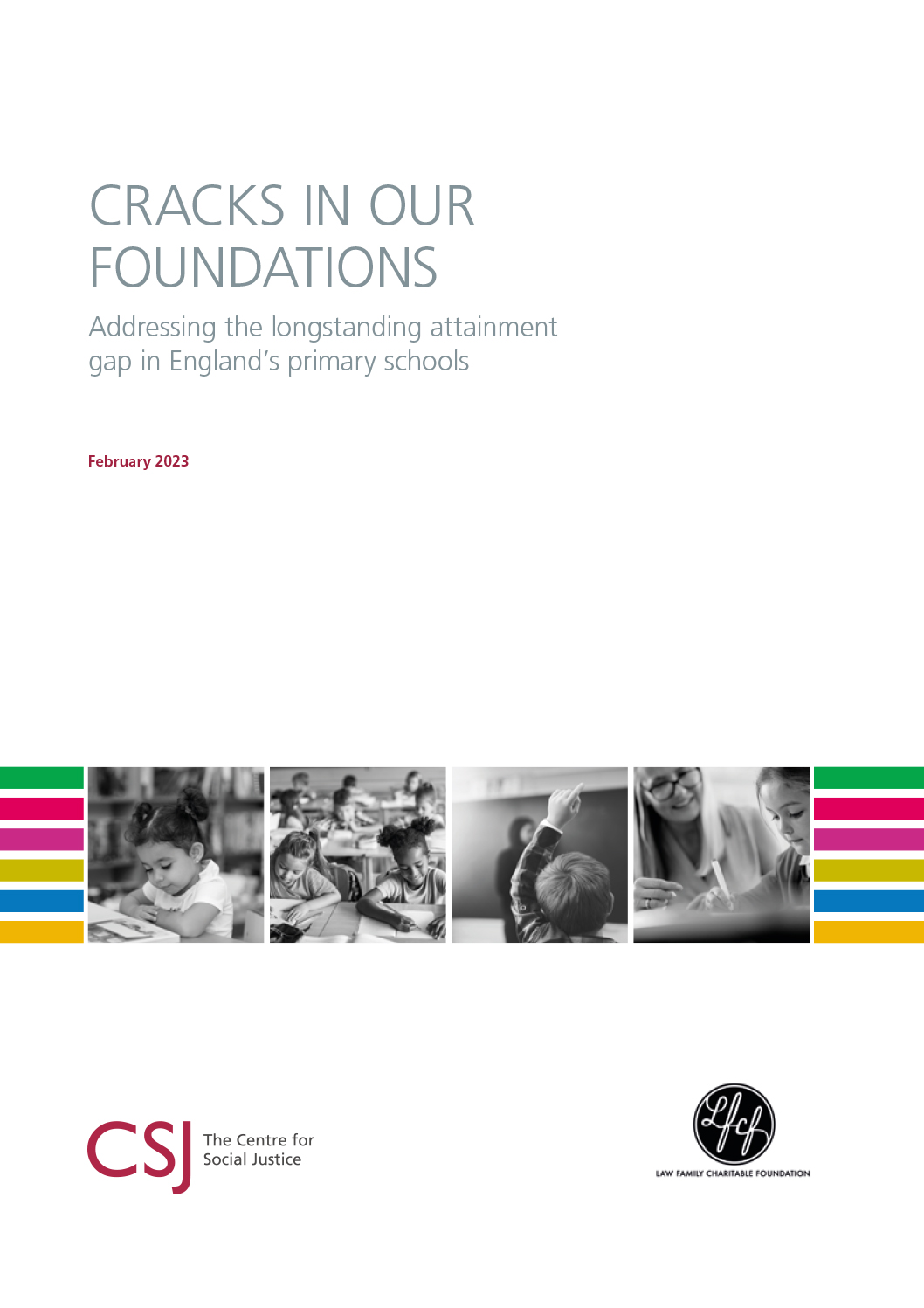England’s primary school system has a long-standing problem: each academic year thousands of pupils leave primary school without reaching expected standards in foundational skills. These children go on to secondary school ill-equipped to engage in further learning and unable to reach their true potential.
In 2022, two in five pupils (41 per cent) completed year 6 without meeting the expected standards in reading, writing and maths (combined). In total, over 275,000 children left year 6 without a secure grasp of foundational skills.
The odds are even worse for children from disadvantaged backgrounds. Last year, the majority (57 per cent) of children from disadvantaged backgrounds left primary school without reaching the expected standard in these subjects.
The attainment gap for primary school children now stands at its widest level in a decade. The roots of the attainment gap start in the early years. If we want to improve educational outcomes, we have to start in the first 1,001 days. Many more babies, young children and their families could and should be getting a better start in life. However, we know that inequalities open up early, poverty can scar deeply, and life chances are cut short. The Centre for Social Justice helped to lead the Early Years Commission which set out a radical plan to improve early years provision. This report centres on changes that should be made to improve the life chances of children in primary school.
Unquestionably, outcomes from children have been made worse by the disruption to education following school shutdowns. However, while the pandemic poured fuel on the fire of education inequality, these gaps were evident even before Covid-19 struck. In 2019, a disadvantaged pupil aged 11 was, on average, nine months behind their non-disadvantaged peers. Children living in persistent poverty were a whole year behind.
While the government is ambitious about improving education and life chances for young people, teachers fear that they are not on course to achieve their aims. The idea that 90 per cent of all children in 2030 will leave primary school reaching these expected standards is a far cry from reality.
Our polling reveals that at the just 40 per cent of teachers said that they were confident that most of their pupils would meet expected standards in 2023. Even starker, just 17 per cent of teachers are confident that this will be true for most of their disadvantaged pupils.
Our education system needs to ensure every child leaves primary school with a strong grasp of foundational skills, at the very minimum. Foundational skills are essential for future education, work, and wellbeing.
This report sets out an ambitious plan to create an education system which allows all children to secure the foundational skills they need to thrive.

